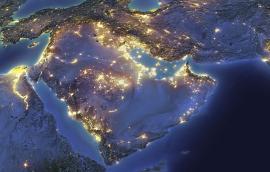Baker Briefing: The Politicization of Humanitarian Aid Explained
Armed conflict in Gaza, Sudan, and Syria has made millions reliant on humanitarian assistance. Experts Kelsey Norman and Salah Ben Hammou from the Baker Institute's Center for the Middle East joined Baker Briefing to discuss parallels between the dire situations in Gaza, Sudan, and Syria and the challenges of delivering humanitarian aid to war-torn regions.
David M. Satterfield, Kelsey Norman, Salah Ben Hammou November 19, 2024









